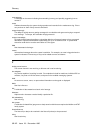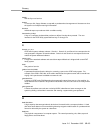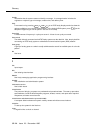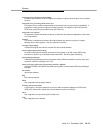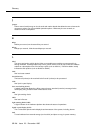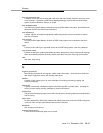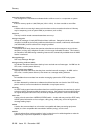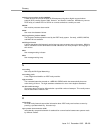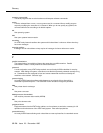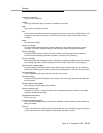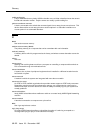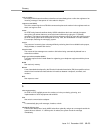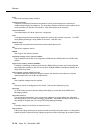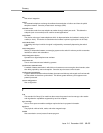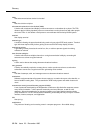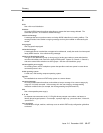
Glossary
GL-20 Issue 2.0 December 1995
operating system (OS)
The set of programs that runs the hardware and interprets software commands.
option
A choice selected from a menu, or an argument used in a command line to modify program
output by modifying the execution of a command. When you do not specify any options, the
command will execute according to its default options.
OS
See
operating system
.
OSI
See
open systems interconnection
.
outcalling
An AT&T Intuity feature that allows the system to dial subscribers’ numbers to inform them they
have new messages.
outgoing mailbox
A storage area for subscribers to keep copies of messages for future reference or action.
P
parallel transmission
The transmission of several bits of data at the same time over different wires. Parallel
transmission of data is usually faster than serial transmission.
password
A code assigned to every AT&T Intuity terminal user and Intuity AUDIX subscriber for security
reasons. After dialing the system, subscribers must dial their personal password correctly to log
on. Passwords are also assigned to local and remote networked machines to identify the
machines or the network. See also
login.
password aging
An Intuity AUDIX feature that allows administrators to set a length of time after which a
subscriber’s password expires. The subscriber is then forced to change the password.
PBX
See
private branch exchange
.
PC
See
power converter
.
PDM (processor data module)
See
modular processor data module (MPDM)
.
PEC
See
price element code
.
peripheral device
Equipment external to the AT&T Intuity cabinet, such as printers or terminals, necessary for full
operation and maintenance of the AT&T Intuity system. Also called
peripherals
.
personal directory
An Intuity AUDIX feature allowing each subscriber to create a private list of customized names.



